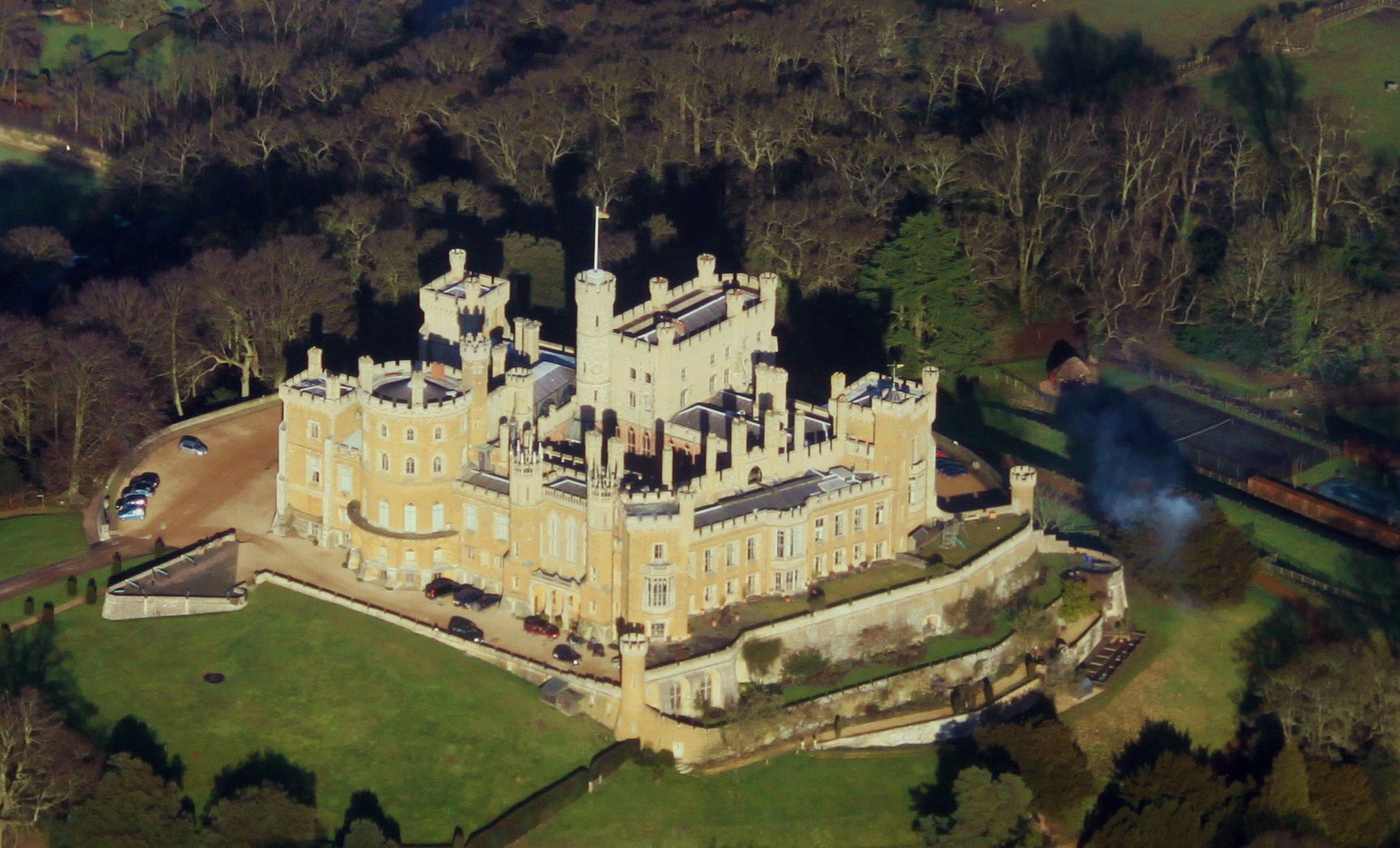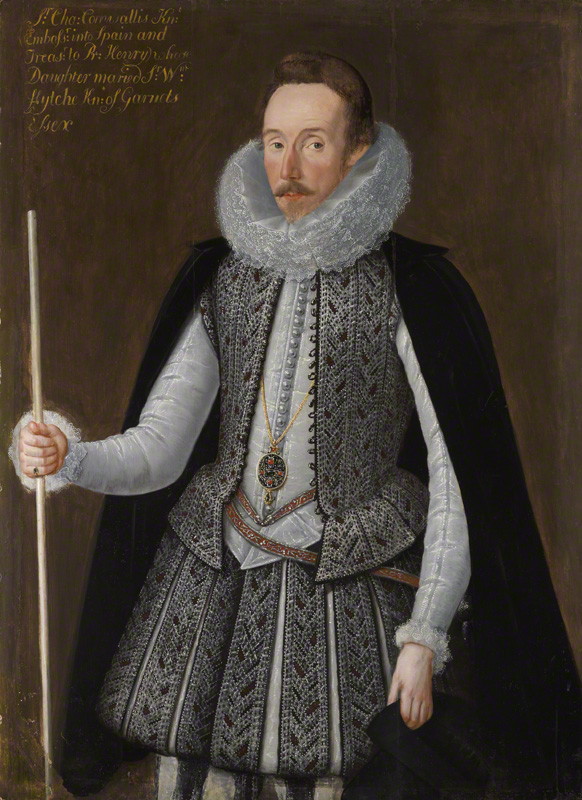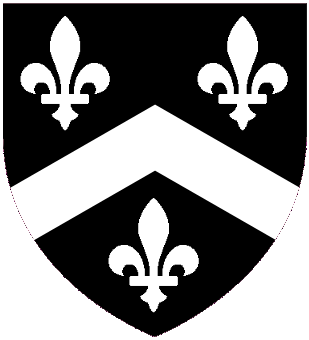|
John Jegon
John Jegon (1550 – 13 March 1618) was an English academic and Bishop of Norwich. He supported uniformity of Anglican doctrine and worship, and strong government. This led him into conflict with John Robinson, later pastor to the ''Mayflower'' emigrants. On the other hand, he made efforts to satisfy local Puritans by the appointment of preachers in his diocese. Nicholas Bownd dedicated to him a work on doctrine of Sabbath. Education and academic career He was educated at Queens' College, Cambridge, where he graduated B.A. and became a Fellow in 1572, and was then at Corpus Christi College, Cambridge, where he became Master in 1590. His pupils included both Roger Manners and Francis Manners, Earls of Rutland. He had a long correspondence with their mother Elizabeth, widow of John Manners, 4th Earl of Rutland. He was Vice-Chancellor of the University of Cambridge, from 1596 to 1598. As Vice-Chancellor he attempted to discipline John Rudd. Clerical career He became Dean of Nor ... [...More Info...] [...Related Items...] OR: [Wikipedia] [Google] [Baidu] |
Bishop Of Norwich
The Bishop of Norwich is the ordinary of the Church of England Diocese of Norwich in the Province of Canterbury. The diocese covers most of the county of Norfolk and part of Suffolk. The bishop of Norwich is Graham Usher. The see is in the city of Norwich and the seat is located at the Cathedral Church of the Holy and Undivided Trinity. The bishop's residence is Bishop's House, Norwich. It is claimed that the bishop is also the abbot of St Benet's Abbey, the contention being that instead of dissolving this monastic institution, Henry VIII united the position of abbot with that of bishop of Norwich, making St Benet's perhaps the only monastic institution to escape ''de jure'' dissolution, although it was despoiled by its last abbot. East Anglia has had a bishopric since 630, when the first cathedral was founded at Dommoc, possibly to be identified as the submerged village of Dunwich. In 673, the see was divided into the bishoprics of Dunwich and Elmham; which were ... [...More Info...] [...Related Items...] OR: [Wikipedia] [Google] [Baidu] |
Francis Manners, 6th Earl Of Rutland
Francis Manners, 6th Earl of Rutland, KG (1578–1632) was an English nobleman. Despite a brief imprisonment for his involvement in the Essex Rebellion of 1601, he became prominent at the court of James I. He lived at Belvoir Castle in Leicestershire. In 1618 three women, the "Witches of Belvoir", were accused of witchcraft for having allegedly caused the deaths of his two young sons. Biography Francis Manners was the second son of John Manners, 4th Earl of Rutland, and Elizabeth Charlton (died 1595), the daughter of Francis Charlton of Apley Castle, Shropshire. In 1598, he went abroad, travelling through France, Germany, and Italy, probably in the company of the former school teacher Robert Dalllington and Inigo Jones. On his return to England he took part, along with his older brother Roger and their younger brother George, in the 1601 rebellion of Robert Devereux, 2nd Earl of Essex, and was imprisoned in the Poultry Counter. He was fined a thousand marks and committed t ... [...More Info...] [...Related Items...] OR: [Wikipedia] [Google] [Baidu] |
1618 Deaths
Events January–June * February 26 – Osman II deposes his uncle Mustafa I as Ottoman sultan (until 1622). * March 8 – Johannes Kepler discovers the third law of planetary motion (after some initial calculations, he soon rejects the idea, but on May 15 confirms the discovery). * April 21 – Spanish-born Jesuit missionary Pedro Páez becomes (probably) the first European to see and describe the source of the Blue Nile in Ethiopia. * May 23 – The Second Defenestration of Prague – Protestant noblemen hold a mock trial, and throw two direct representatives of Ferdinand II of Germany (Imperial Governors) and their scribe out of a window into a pile of manure, exacerbating a low-key rebellion into the Bohemian Revolt (1618–1621), precipitating the Thirty Years' War into armed conflict, and further polarizing Europe on religious grounds. * June 14 – Joris Veseler prints the first Dutch newspaper '' Courante uyt Italien, Duytsla ... [...More Info...] [...Related Items...] OR: [Wikipedia] [Google] [Baidu] |
1550 Births
Year 155 ( CLV) was a common year starting on Tuesday (link will display the full calendar) of the Julian calendar. At the time, it was known as the Year of the Consulship of Severus and Rufinus (or, less frequently, year 908 ''Ab urbe condita''). The denomination 155 for this year has been used since the early medieval period, when the Anno Domini calendar era became the prevalent method in Europe for naming years. Births * Cao Cao, Chinese statesman and warlord (d. 220) * Dio Cassius, Roman historian (d. c. 235) * Tertullian, Roman Christian theologian (d. c. 240) * Sun Jian, Chinese general and warlord (d. 191) Deaths * Pius I, Roman bishop * Polycarp, bishop of Smyrna (b. AD 65 AD 65 ( LXV) was a common year starting on Tuesday (link will display the full calendar) of the Julian calendar. At the time, it was known as the Year of the Consulship of Nerva and Vestinus (or, less frequently, year 818 ''Ab urbe condita'') ...) References {{DEFAULTSORT:155 [...More Info...] [...Related Items...] OR: [Wikipedia] [Google] [Baidu] |
George Montgomery (bishop)
George Montgomery (1562–1621) (''alias'' Montgomerie) was a Scottish protestant cleric, promoted by King James VI and I to various Irish bishoprics. He held the offices of Rector of Chedzoy, Somerset; Dean of Norwich (1603); Bishop of Raphoe, Bishop of Clogher, Bishop of Derry (1605); and Bishop of Meath (1610). Life He was born in North Ayrshire, the younger son of Adam Montgomery, 5th Laird of Braidstane, and brother of Hugh Montgomery, 1st Viscount Montgomery, who used his influence on George's behalf. Their mother Margaret Montgomery of Hessilhead was a cousin. After James I had made him Dean of Norwich in 1603, he was appointed the first Protestant Bishop of Raphoe, in 1605. There he began the reconstruction of The Cathedral Church of St. Eunan. At the same time he was made Bishop of Clogher and Bishop of Derry; and in 1607 lobbied Lord Salisbury for the establishment of free schools in Ulster. His translation to these remote Irish sees did not greatly please him, nor ... [...More Info...] [...Related Items...] OR: [Wikipedia] [Google] [Baidu] |
Deans Of Norwich
The Dean of Norwich is the head of the Chapter of Norwich Cathedral in Norwich, England. The role is vacant since Jane Hedges' retirement on 1 May 2022. List of deans Early modern *1538–1539 William Castleton (last prior) *1539–1554 John Salisbury ''(deprived)'' *1554–1557 John Christopherson (afterwards Bishop of Chichester, 1557) *1557–1558 John Boxall (also Dean of Windsor, 1557–59 and Dean of Peterborough, 1557–1559) ''(deprived)'' *1558–1559 John Harpsfield (also Archdeacon of London, 1554–1559) ''(deprived)'' *1560–1573 John Salisbury ''(restored)'' *1573–1589 George Gardiner *1589–1601 Thomas Dove (afterwards Bishop of Peterborough, 1601) *1601–1603 John Jegon (afterwards Bishop of Norwich, 1603) *1603–1614 George Montgomery (afterwards Bishop of Raphoe, 1605) *1614–1628 Edmund Suckling *1628–1654 John Hassal ''(deprived – Commonwealth)'' *1660–1670 John Crofts *1670–1681 Herbert Astley *1681–1689 John Sharp (after ... [...More Info...] [...Related Items...] OR: [Wikipedia] [Google] [Baidu] |
Thomas Dove
Thomas Dove (1555 – 30 August 1630) was Bishop of Peterborough from 1601 to 1630. Dove was born in London, England, and educated at Merchant Taylors' School from 1564 to 1571. He was named as one of the first scholars of Jesus College, Oxford in its foundation charter in 1571, but never attended. Instead, he became a scholar at Pembroke College, Cambridge, obtaining his BA in 1575 and his MA in 1578. He was a Pembroke contemporary of Lancelot Andrewes, who had also been educated at Merchant Taylors' School and named as a founding scholar of Jesus College, Oxford. Dove was ordained in 1578 and became vicar of Saffron Walden, Essex in 1580. Dove was a noted preacher, impressing Queen Elizabeth who remarked that she "thought the Holy Ghost was descended again in this Dove". In 1589, Dove became Dean of Norwich The Dean of Norwich is the head of the Chapter of Norwich Cathedral in Norwich, England. The role is vacant since Jane Hedges' retirement on 1 May 2022. Li ... [...More Info...] [...Related Items...] OR: [Wikipedia] [Google] [Baidu] |
Thomas Jegon
Thomas Jegon (died 2 March 1618) was a priest and academic in the late sixteenth and the early seventeenth centuries. Jegon was the son of Robert Jegon of Coggeshall, and the younger brother of John Jegon, Bishop of Norwich. He matriculated at Queens' College, Cambridge in 1580, graduating B.A. in 1584, M.A. in 1587, D.D. in 1602. He was appointed Fellow of Corpus Christi College, Cambridge in 1587, and succeeded his brother John as Master of Corpus Christi in 1603. He was Vice-Chancellor of the University of Cambridge from 1608 to 1609. He held livings at Sible Hedingham and Ashen. He was Archdeacon of Norwich The Archdeacon of Norwich is a senior ecclesiastical officer in the Church of England Diocese of Norwich, who exercises supervision of clergy and responsibility for church buildings within the geographical area of her or his archdeaconry. History ... from 1604 until his death on 2 March 1618. References Alumni of Queens' College, Cambridge Fellows of Corpus ... [...More Info...] [...Related Items...] OR: [Wikipedia] [Google] [Baidu] |
John Copcot
John Copcot, DD (died 1590) was an English cleric and academic, becoming Vice-Chancellor of the University of Cambridge and Master of Corpus Christi College, Cambridge. Early life and family Copcot was born in Calais, son of Adam Copcott, an English merchant. ''Athenae Cantabrigienses'' notes that John’s brother left a bequest to Corpus Christi College; that brother is almost certainly Reynold Copcott (known to be son of Adam Copcott and his wife Elizabeth Lynne) whose will dated 1598 did leave money to both Corpus Christi College and Trinity College. He was admitted as a scholar of Trinity College, Cambridge in 1562, and took his BA in 1566. Clerical career Copcot's clerical career began at Cambridge, and he was licensed as one of the preachers of the university in 1576. Copcot was a defender of the Anglican Church and its hierarchy, particularly against dissenters and Puritans. In the 1580s, he preached in London in favour of the established church. The roles he held withi ... [...More Info...] [...Related Items...] OR: [Wikipedia] [Google] [Baidu] |
Sir Charles Cornwallis
Sir Charles Cornwallis (died 1629) was an English courtier and diplomat. Life He was the second son of Sir Thomas Cornwallis, controller of Queen Mary's household, who had been imprisoned by Elizabeth in 1570. He was probably born at his father's house of Brome Hall, Suffolk. Nothing is known of Cornwallis till 11 July 1603, when he was knighted. In 1604 he was Member of Parliament for Norfolk. Early in 1605 he was sent as resident ambassador to Spain. He was active in attempting to protect English merchants from the Spanish Inquisition, and lobbied the home government for English commercial interests. He was recalled in September 1609, and his secretary, Francis Cottington, took his place at Madrid. In 1610 he became treasurer of the household of Henry, Prince of Wales, resisted the proposal to marry the prince to a daughter of the Duke of Savoy, and attended his master through his fatal illness of 1612. He was a candidate for the post of master of the wards in the same ... [...More Info...] [...Related Items...] OR: [Wikipedia] [Google] [Baidu] |
Richard Vaughan (bishop)
Richard Vaughan (c.1550 – 30 March 1607) was a Welsh bishop of the Church of England. Life His father was Thomas ap Robert Fychan of Llŷn, Caernarfonshire. He was educated at St John's College, Cambridge, where he graduated BA in 1574, MA in 1577, and DD in 1589. He became chaplain to John Aylmer, Bishop of London, who is said to have been a relative. Vaughan assisted William Morgan in his translation of the Bible into Welsh, published in 1588. He was rector of Chipping Ongar from 1578 to 1580, and of Little Canfield in 1580; Archdeacon of Middlesex in 1588; rector of Great Dunmow and Moreton in 1592, and of Stanford Rivers in 1594. He became Bishop of Bangor in 1595, Bishop of Chester in 1597, was Bishop of London from 1604 to 1607. His views were Calvinist, and he signed and is presumed to have had input into the ''Lambeth Articles'' of 1595. He licensed in 1606 the translation of the work ''Institutiones Theologicae'' of the Reformed theologian Guillaume Du ... [...More Info...] [...Related Items...] OR: [Wikipedia] [Google] [Baidu] |
John Whitgift
John Whitgift (c. 1530 – 29 February 1604) was the Archbishop of Canterbury from 1583 to his death. Noted for his hospitality, he was somewhat ostentatious in his habits, sometimes visiting Canterbury and other towns attended by a retinue of 800 horses. Whitgift's theological views were often controversial. Early life and education He was the eldest son of Henry Whitgift, a merchant, of Great Grimsby, Lincolnshire, where he was born, probably between 1530 and 1533. The Whitgift family is thought to have originated in the relatively close Yorkshire village of Whitgift, adjoining the River Ouse. Whitgift's early education was entrusted to his uncle, Robert Whitgift, abbot of the neighbouring Wellow Abbey, on whose advice he was sent to St Anthony's School, London. In 1549 he matriculated at Queens' College, Cambridge, and in May 1550 he moved to Pembroke Hall, Cambridge, where the martyr John Bradford was his tutor. In May 1555 he was elected a fellow of Peterhouse. Lin ... [...More Info...] [...Related Items...] OR: [Wikipedia] [Google] [Baidu] |





